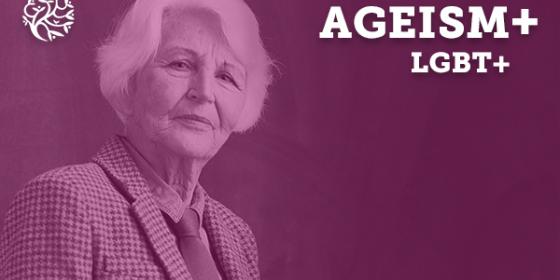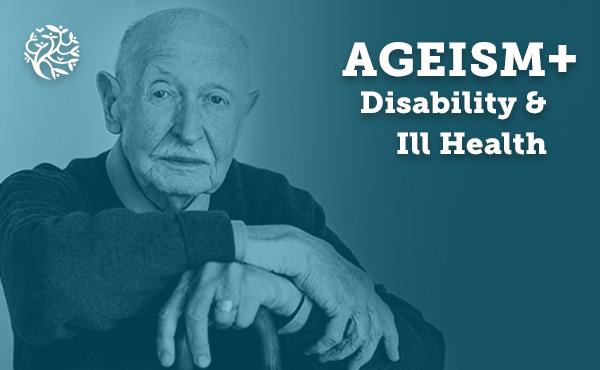 Growing older with HIV
Growing older with HIV
The tendency has been to oversimplify and underplay issues of age diversity. We are left instead with crude negative stereotypes like the ‘burden of ageing’.
The burden of ageing, and other stereotypes
As the numbers and proportions of older people have significantly increased in societies like Britain, the tendency has been to oversimplify and underplay issues of age diversity. We are left instead with crude negative stereotypes like the ‘burden of ageing’ and abstracted proposals for challenging increasing social isolation.
These have been part of a broader thrust of public policy which has had the effect of withdrawing support from older and disabled people. A key yet still underplayed consequence of this is that at least two generations of older people are currently being left to struggle without adequate state assistance, causing serious damage to the lives and relationships of both.
We know there are now many more very old people, but they are now much less likely to be getting help than ever before in modern memory. It’s not just that hundreds of thousands with significant support needs no longer access social care support.
The thrust of public policy has been to close and eat away at key services like day centres, lunch clubs, bereavement support, sheltered housing, ‘meals on wheels’, advice and advocacy agencies, user-led organisations, and so on. The triple consequences are institutionalising isolation, the undermining of prevention and increasing individual uncertainty.
Fear of the lack of support available
Talk, as I have done, to people working face to face with such older people and the picture painted is one of rising anxiety, depression and fear. People feeling frightened on their own, not knowing how they will manage, what will happen to them, afraid of their end, worried about burdening their loved ones. Many have no or minimal support in their daily lives yet may be facing the effects of CODP (Chronic Obstructive Pulmonary Disease), arthritis, heart problems, cancer, emphysema, Alzheimer’s and other long-term conditions.
Then there is the younger generation in their 50s and 60s. Increasingly they are expected to take on the major role of looking after very old people. This is on top of everything else they are now supposed to be doing; working into their late 60s, looking after their own children and grandchildren, acting as the bank and housing association of ‘mum and dad’, increasingly serving as a key source of child care, sometimes facing their own health problems.
These are the family ‘carers’ that successive governments love to praise as ‘heroes’, while consistently failing to offer them any measure of real practical or financial support.
It’s no fun looking after someone else with no support.
The “younger old” and the “older old”
These two generations are increasingly likely to live some distance from each other and whether they get on or not, the younger one will still be expected to look after the other. If they are struggling in their 50s or 60s with employment issues, then they can also expect to be one of the groups most harassed by the ‘reformed’ welfare benefits system.
They will be pressured to get a job and to document what they have done to achieve this with targets like 10 applications a day. If their health suffers, they can expect to be told they aren’t ‘sick’. The psychological effects are predictable and well documented; depression, anxiety, demoralisation. It’s no fun looking after someone else with no support.
Mrs ‘A’ exemplifies the reality of this situation. She has a congenital heart condition following major surgery after her first pregnancy. Now in her 50s, she looks after her widowed father with Alzheimer’s. Her husband had just stopped looking after his elderly mother because of her death.
He’s still working full-time. Looking after her father, she reports, is a great strain. She succeeded in securing a diagnosis of dementia for him, but this has resulted in no significant help. She has had two small strokes linked with the strain. There is no prospect of any improvement unless she and her husband ‘behave like baddies’ and try to get her father into a home – which they don’t want.
Living longer is a boon we should be celebrating, supporting and resourcing, not a policy problem successive governments refuse to face up to.
Celebrating the boon of longer life
So present politics and policymakers pass responsibilities and problems down the line and leave older people most in need to face the worsening consequences of changing demographics. Living longer is a boon we should be celebrating, supporting and resourcing, not a policy problem successive governments refuse to face up to. There may now be more than one ‘older age’, but it is time all who make it that far should be valued for their contributions, rather than penalised for their longevity.
We must continuously challenge our own views and behaviour
Peter Beresford OBE is Professor of Citizen Participation at the University of Essex and Co-Chair of Shaping Our Lives, the national disabled people’s and service user organisation and network.
If you have been affected by any of the issues described in this blog, or simply need someone to reach out to, you can call Independent Age’s freephone helpline for information and advice on 0800 319 6789.
The views and opinions expressed in this article are those of the author and do not necessarily reflect the policy or position of Independent Age.
